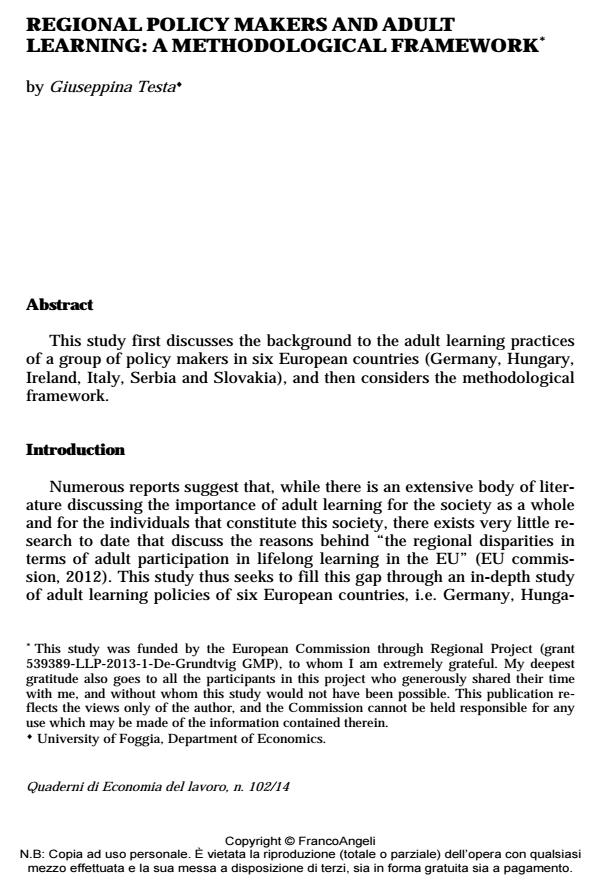Regional policy makers and adult learning: a methodological framework
Titolo Rivista QUADERNI DI ECONOMIA DEL LAVORO
Autori/Curatori Giuseppina Testa
Anno di pubblicazione 2015 Fascicolo 2014/102
Lingua Italiano Numero pagine 12 P. 43-54 Dimensione file 68 KB
DOI 10.3280/QUA2014-102004
Il DOI è il codice a barre della proprietà intellettuale: per saperne di più
clicca qui
Qui sotto puoi vedere in anteprima la prima pagina di questo articolo.
Se questo articolo ti interessa, lo puoi acquistare (e scaricare in formato pdf) seguendo le facili indicazioni per acquistare il download credit. Acquista Download Credits per scaricare questo Articolo in formato PDF

FrancoAngeli è membro della Publishers International Linking Association, Inc (PILA)associazione indipendente e non profit per facilitare (attraverso i servizi tecnologici implementati da CrossRef.org) l’accesso degli studiosi ai contenuti digitali nelle pubblicazioni professionali e scientifiche
This study first discusses the background to the adult learning practices of a group of policy makers in six European countries (Germany, Hungary, Ireland, Italy, Serbia and Slovakia), and then considers the methodological framework.
Giuseppina Testa, Regional policy makers and adult learning: a methodological framework in "QUADERNI DI ECONOMIA DEL LAVORO" 102/2014, pp 43-54, DOI: 10.3280/QUA2014-102004